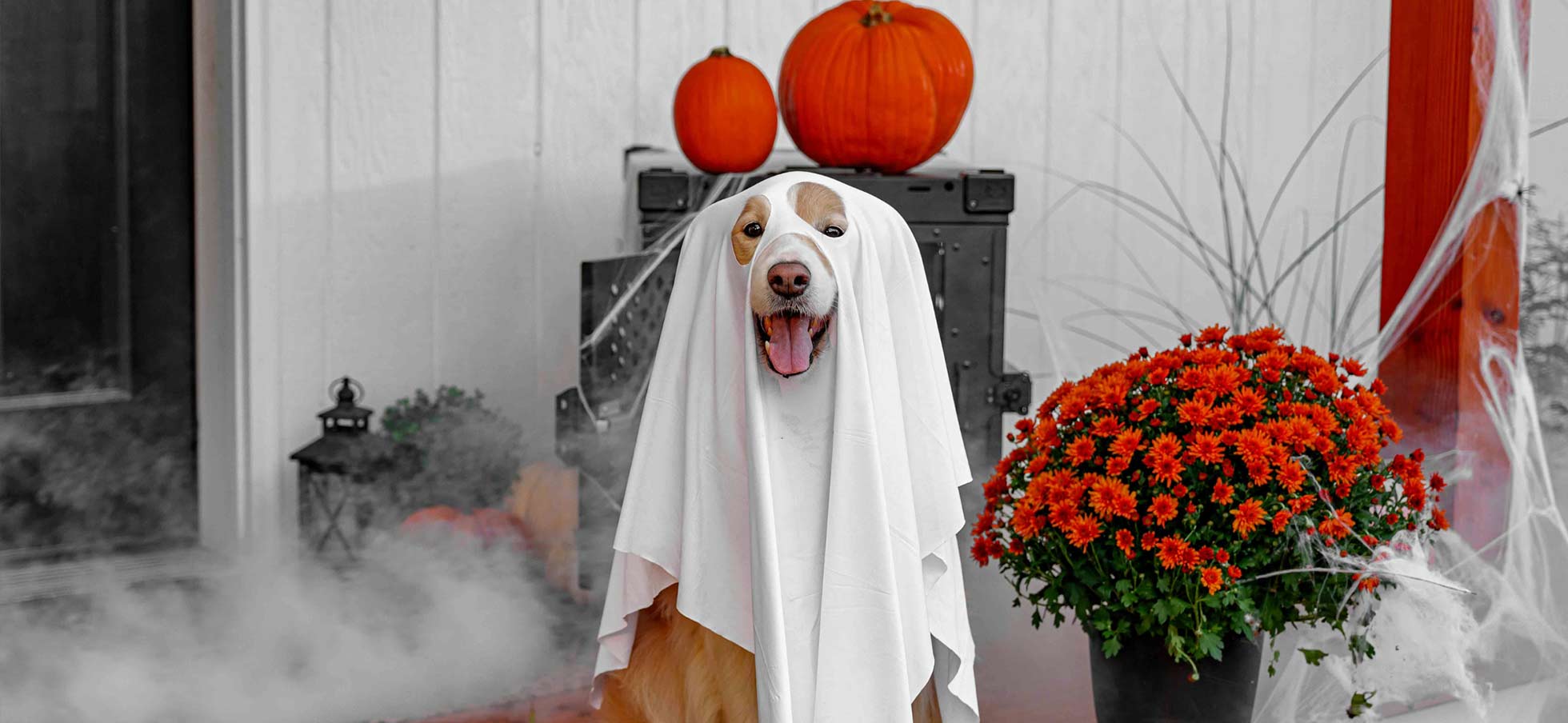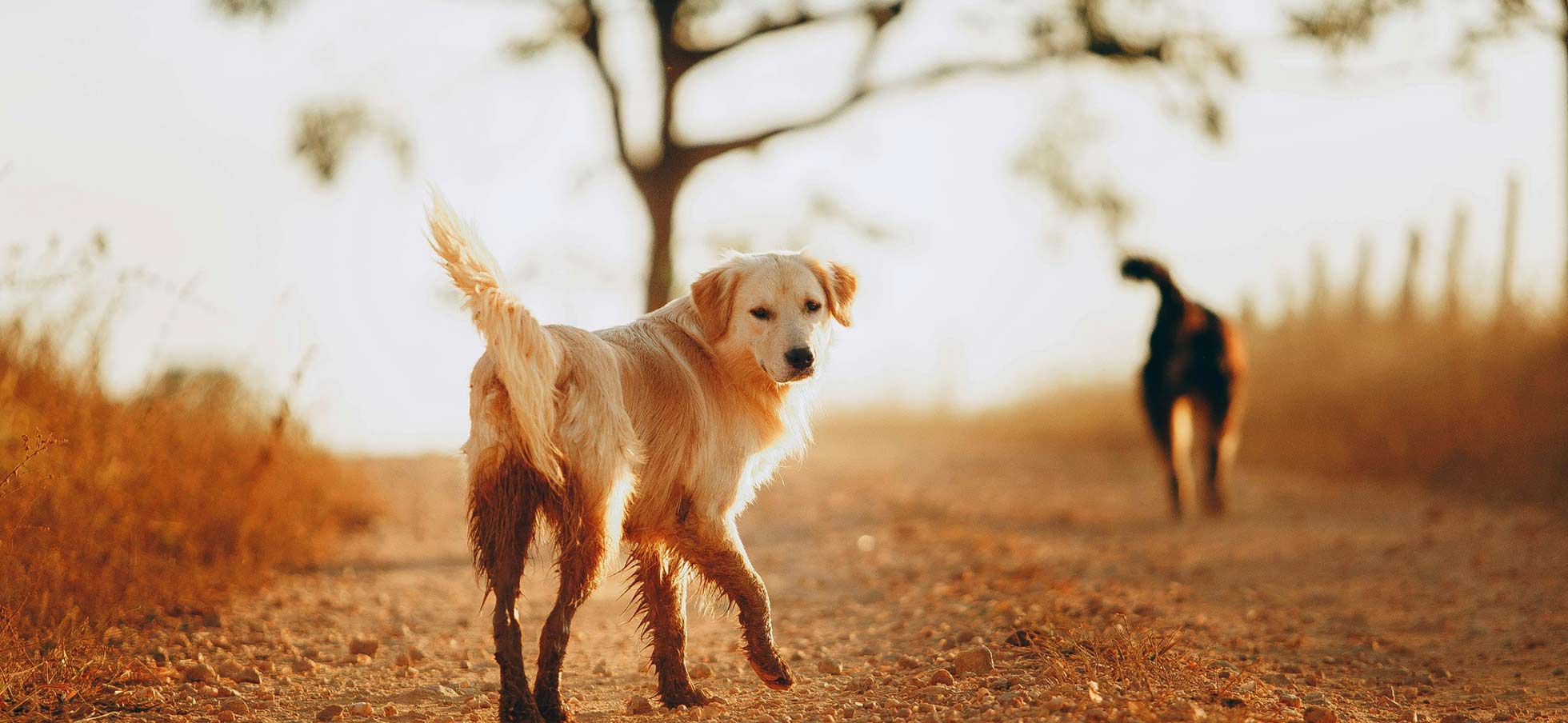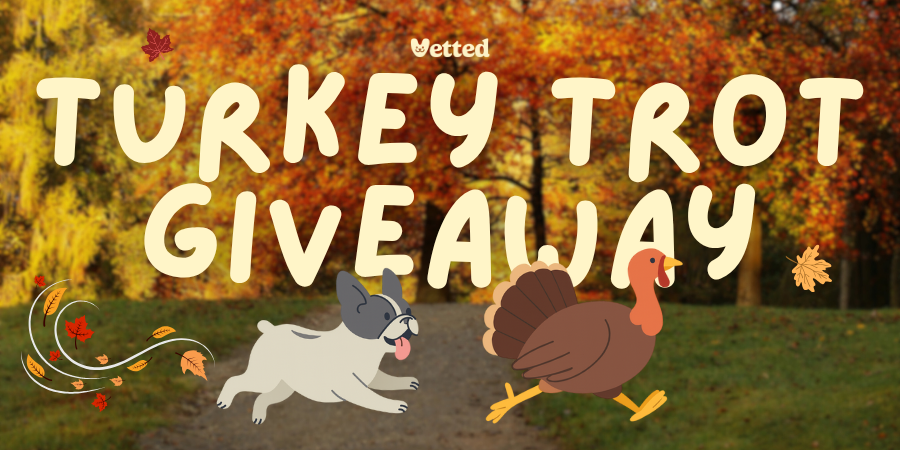The Best App for the Best Pet Parent
With healthy habits and routine veterinary care, you can prevent life-threatening illnesses and costly vet visits.
Our new app is designed to help you manage all aspects your pet’s health and reward you for doing the things you’re already doing!



Fall Foraging Fails and Allergy Flare-Ups: Seasonal Safety for Your Dog
Autumn brings crisp air, golden leaves, and the perfect opportunity for walks with your dog. However, the season also introduces new hazards that can impact your pet’s health. From toxic plants to hidden molds and seasonal allergens, understanding these risks is critical to keeping your dog safe, healthy, and comfortable.
Outdoor Hazards: Hidden Dangers Beneath the Leaves
Mushrooms
Cooler, damp conditions encourage mushroom growth. Many wild mushrooms are toxic to dogs, and ingestion can cause vomiting, tremors, or seizures. Supervise your dog closely, especially in shaded or wooded areas where mushrooms are most likely to grow.
Compost Piles
Composting bins may seem harmless, but decomposing food and yard waste can harbor harmful bacteria and molds that produce mycotoxins. Dogs exposed to these toxins can suffer gastrointestinal upset or more serious health issues. Keep compost bins secured and inaccessible.
Moldy Leaves
Piles of fallen leaves are often full of mold spores. Contact with or ingestion of moldy leaves can irritate your dog’s skin, nose, and lungs. Dogs that play in leaf piles may experience itching, sneezing, or watery eyes.
Seasonal Allergens in the Air
Fall weeds such as ragweed, pigweed, and sagebrush release pollen that can trigger allergic reactions in dogs. Indoor dust from stored blankets or decorations can exacerbate symptoms. Dogs with sensitive immune systems may develop persistent sneezing, coughing, or skin irritation.
Pumpkin Spice and Seasonal Treat Hazards
Many fall treats are unsafe for dogs.
- Nutmeg: Common in pumpkin spice recipes, nutmeg can cause disorientation, tremors, and seizures. Avoid sharing spiced treats with your dog.
- Xylitol: This artificial sweetener, often found in sugar-free baked goods, gum, or peanut butter, is highly toxic to dogs. Ingestion can lead to dangerously low blood sugar and liver failure. Always check ingredient labels before offering any human foods.

Halloween Safety Concerns
- Candy and Chocolate: Both contain toxic compounds such as theobromine and caffeine, which can lead to vomiting, diarrhea, and severe agitation.
- Glow Sticks and Costumes: While glow sticks are not toxic, they can cause drooling, foaming, or panic if chewed. Ensure costumes are safe, properly fitted, and free of small, detachable parts. Avoid glitter or sprays that may irritate skin or trigger allergies.
Fall Allergies in Dogs: Symptoms and Management
Dogs are susceptible to seasonal allergies, and symptoms can resemble infections or behavioral issues. Recognizing these signs early can prevent discomfort and complications.
Common Signs of Fall Allergies
- Excessive paw chewing or tail biting
- Red, scabby skin, particularly on the belly or underarms
- Watery eyes or sneezing indoors
- Ear shaking or new wax buildup
- Coughing or wheezing after outdoor exposure
Allergy Hotspots
- Mold spores in damp grass and decaying leaves
- Dust mites in stored bedding or decorations
- Weed pollen from late-season plants
Steps to Reduce Allergy Symptoms
- Clean After Walks: Wipe paws, bellies, and underarms to remove pollen, mold, and debris.
- Maintain Indoor Cleanliness: Wash bedding weekly, vacuum frequently, and consider using an air purifier for pets with persistent allergies.
- Limit Leaf Pile Play: Avoid contact with wet, decaying leaves to prevent fungal infections and skin irritation.
- Consult Your Veterinarian: Discuss appropriate antihistamines or supplements such as quercetin, omega-3 fatty
Seasonal Safety Summary for Dogs
- Watch for: Mushrooms, compost, moldy leaves
- Avoid: Pumpkin spice, nutmeg, xylitol
- Manage Allergies: Regular grooming, paw wipes, and vet-approved supplements
- Protect During Holidays: Keep candy, chocolate, glow sticks, and small decorative items out of reach
Emergency Guidance
If your dog ingests a potentially toxic substance, contact the ASPCA Animal Poison Control Center immediately at 888-426-4435 (available 24/7). Quick response can prevent serious illness and save your dog’s life.
Keep Your Pup Protected, and Earn Rewards!
You’ve taken the right steps toward protecting your dog from fall allergens, toxins, and seasonal hazards, now don’t forget to claim your reward.
Open the app and mark both “Fall Allergies” and “Fall Toxins” as Completed to earn your Care Coin bonuses. It’s our way of celebrating your commitment to dog health, seasonal pet safety, and keeping tails wagging all autumn long.

.png)

